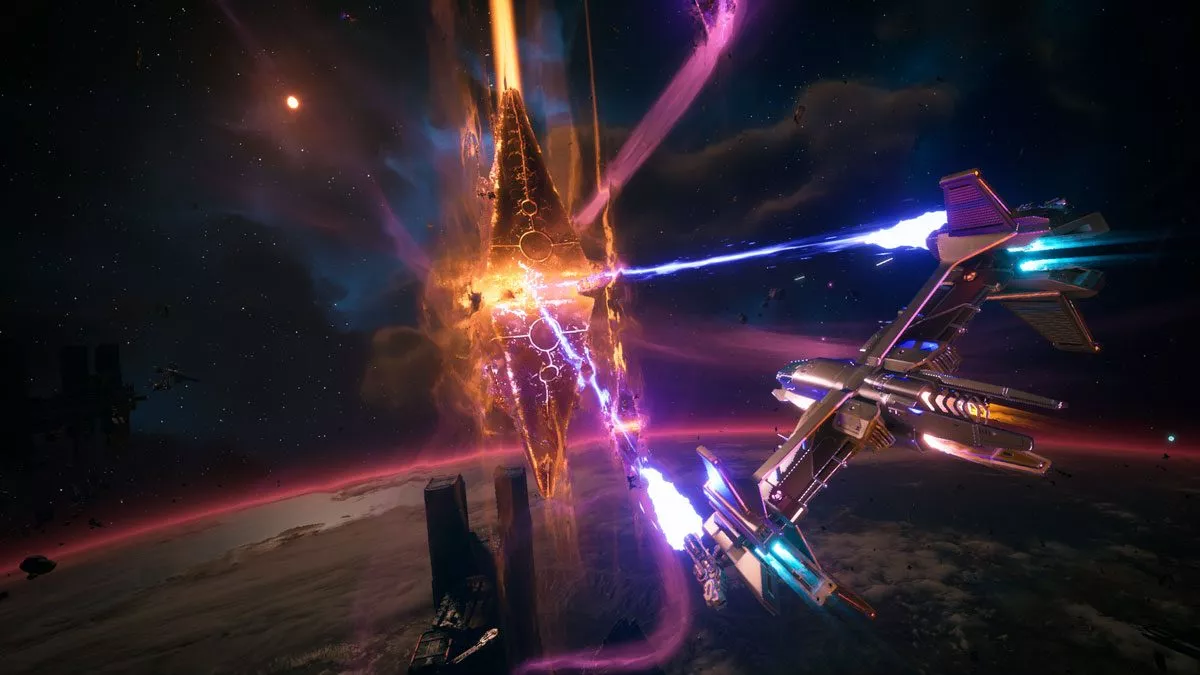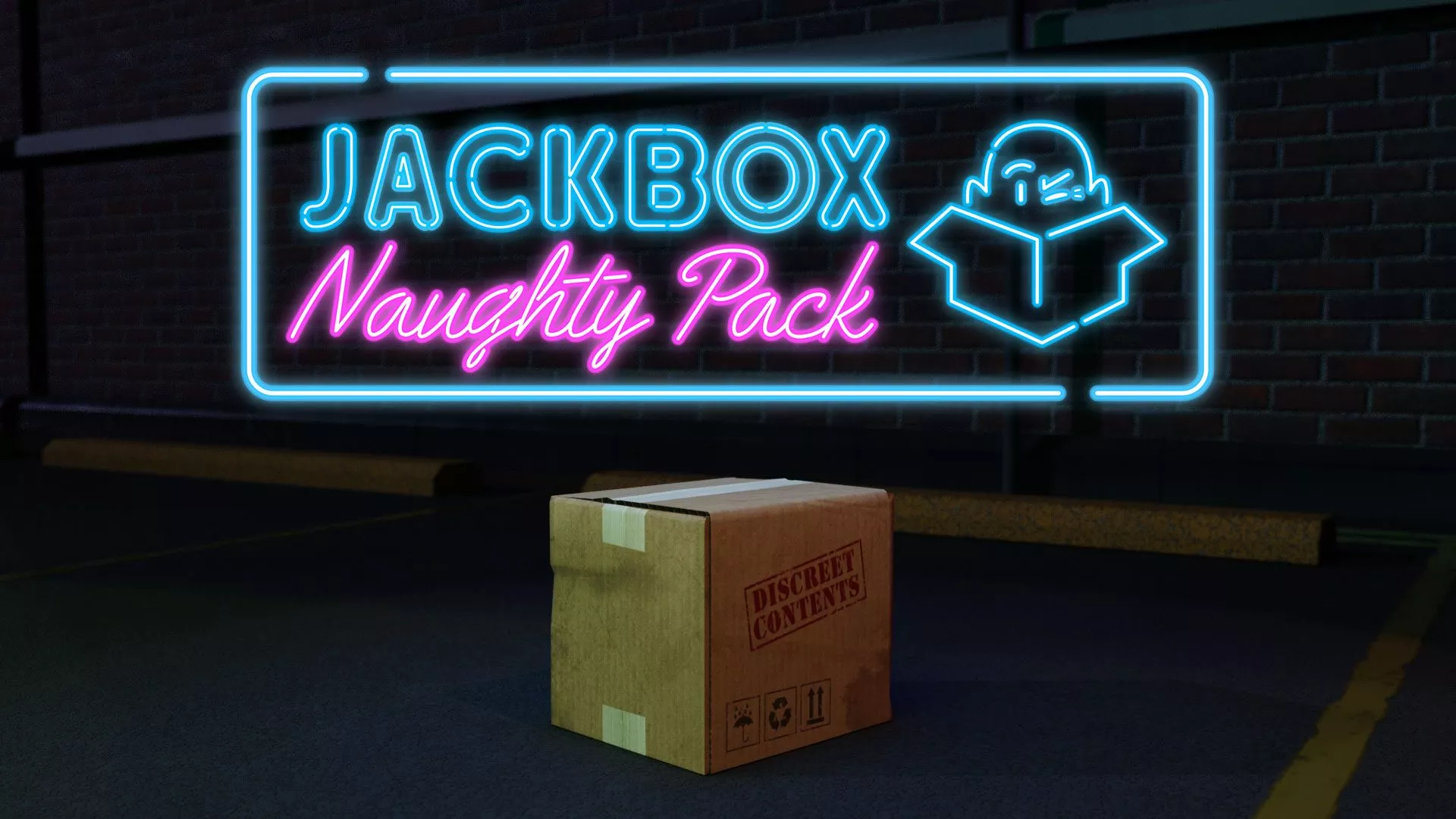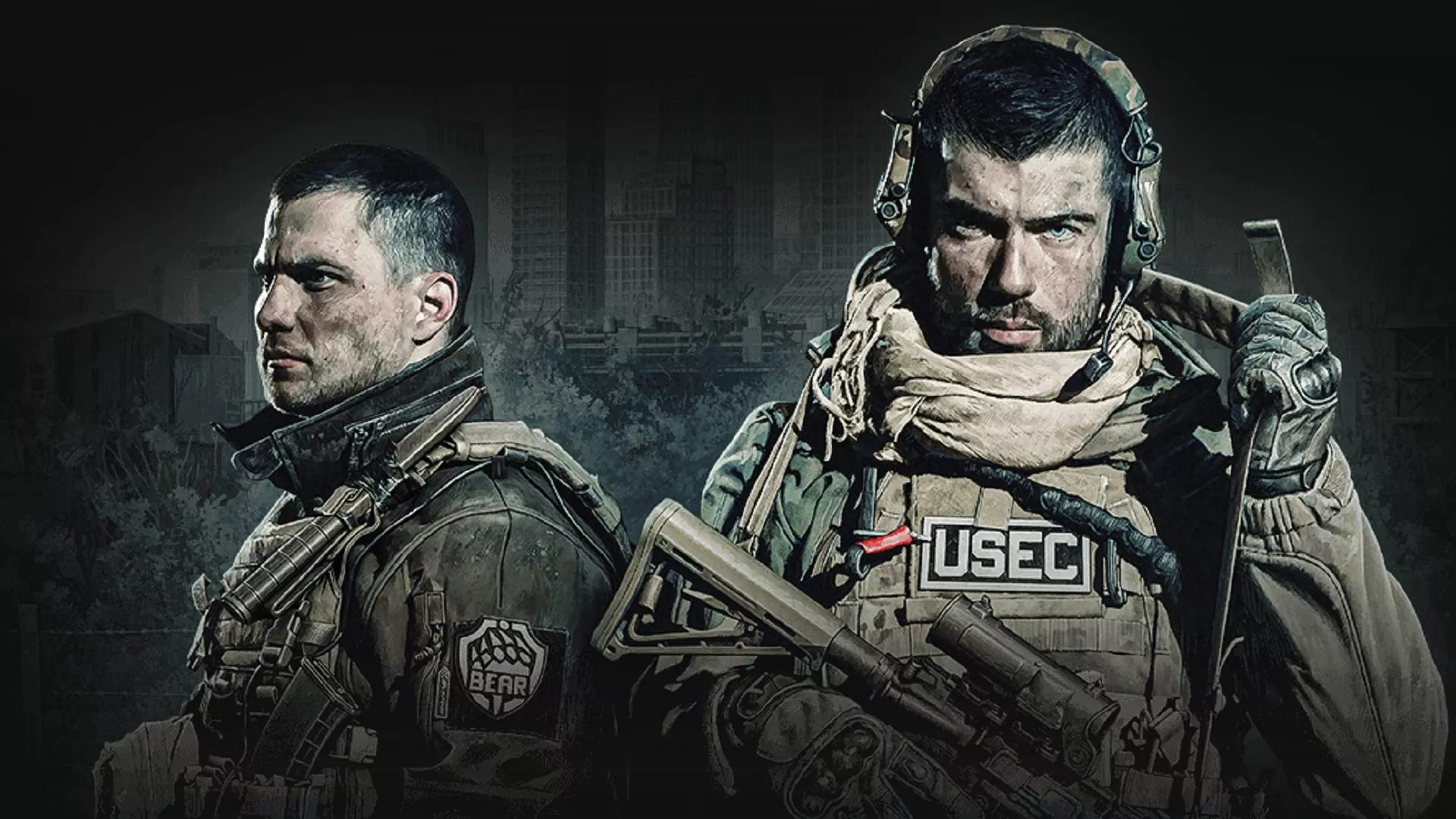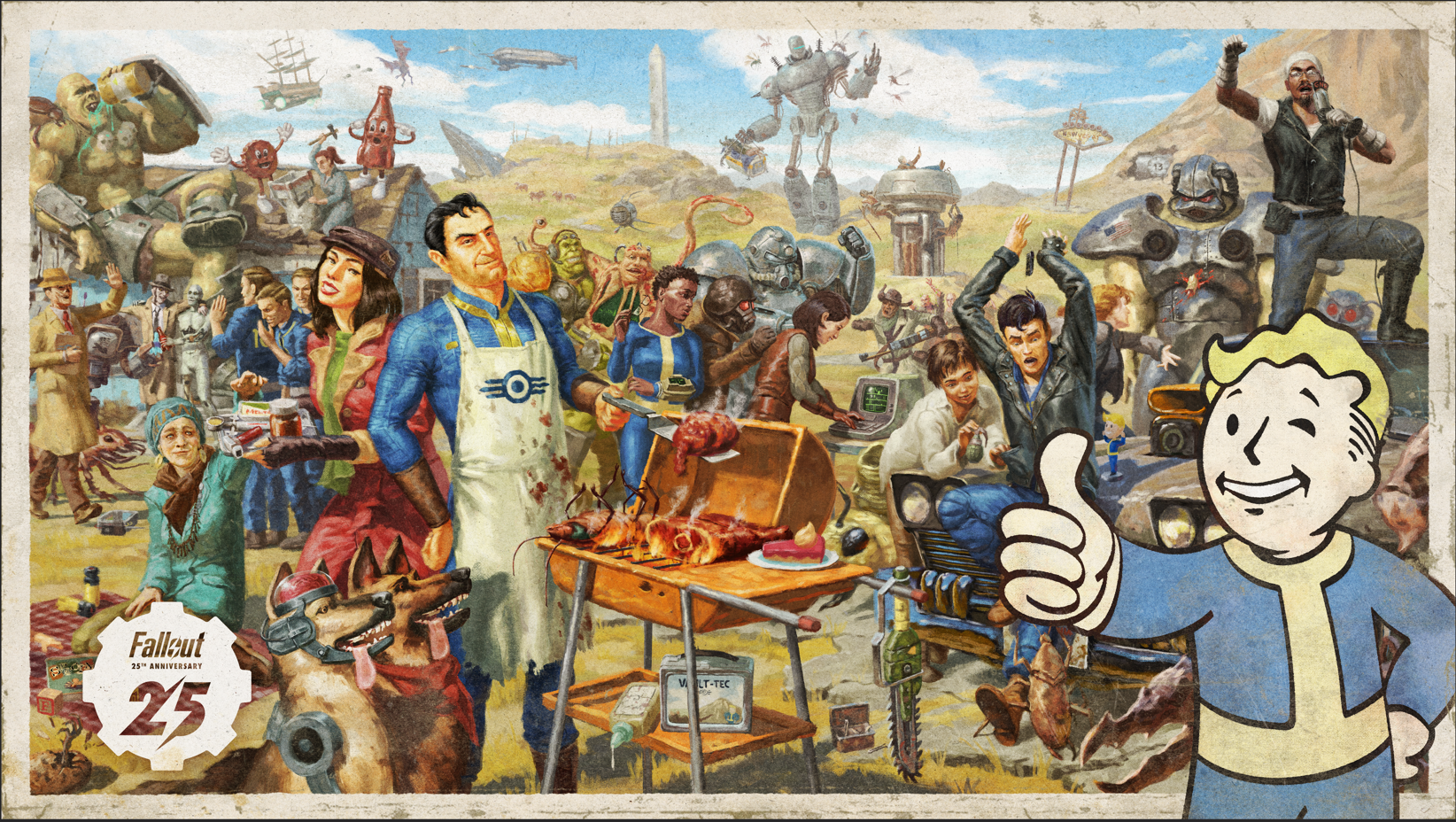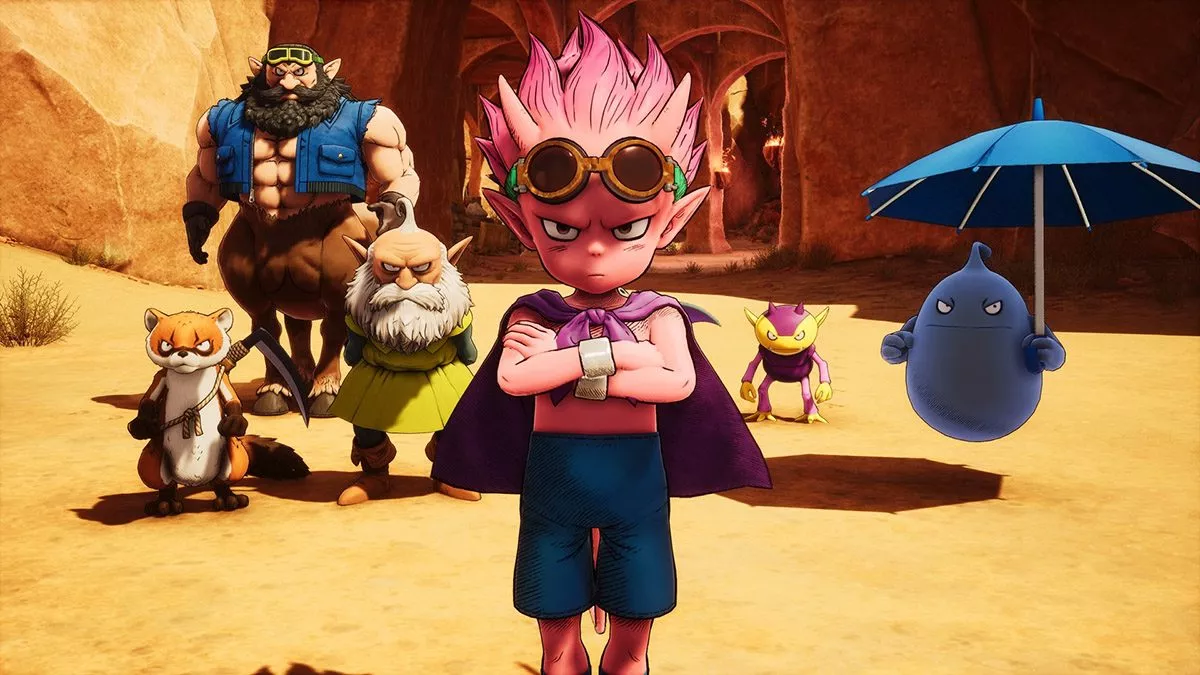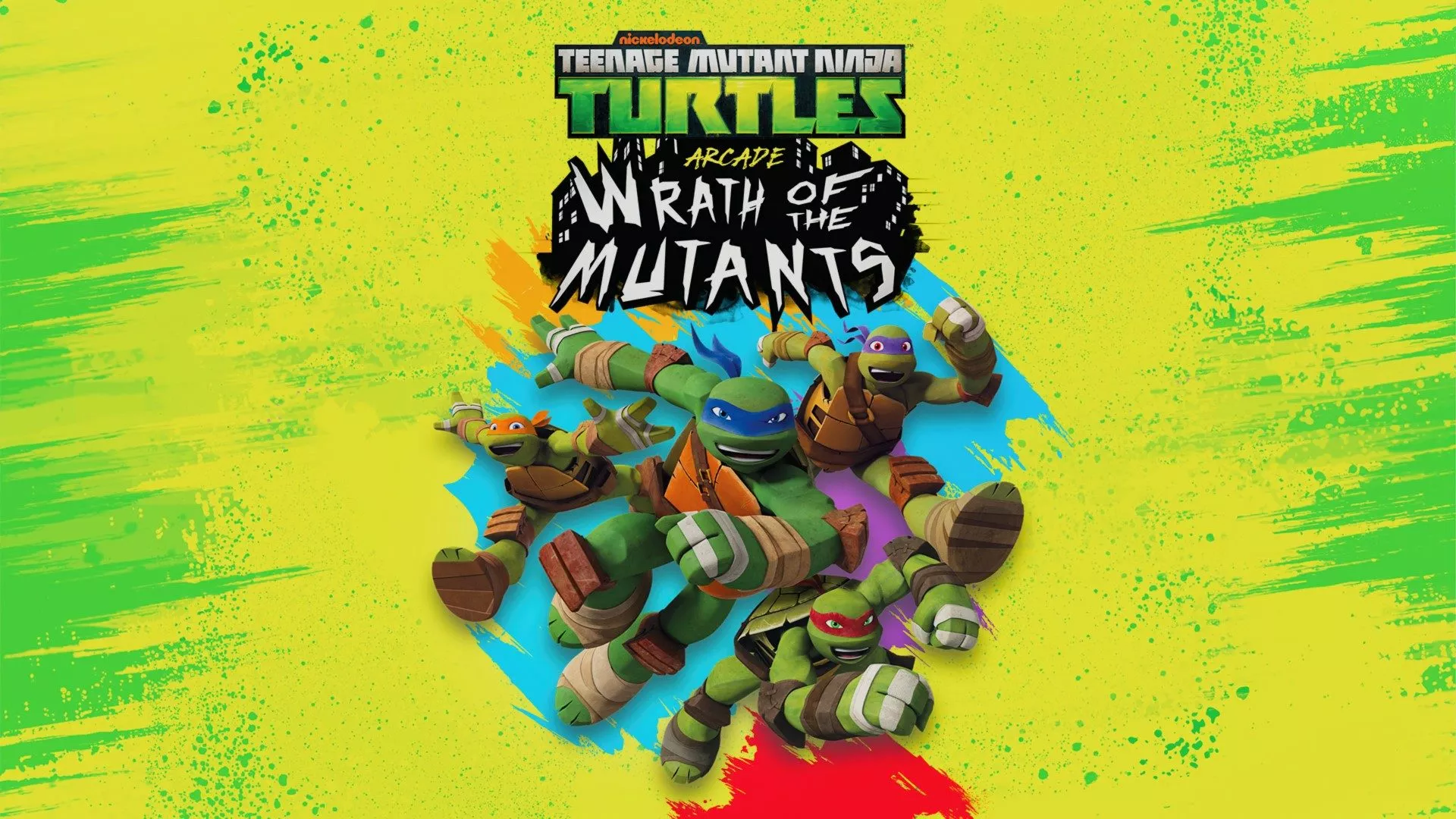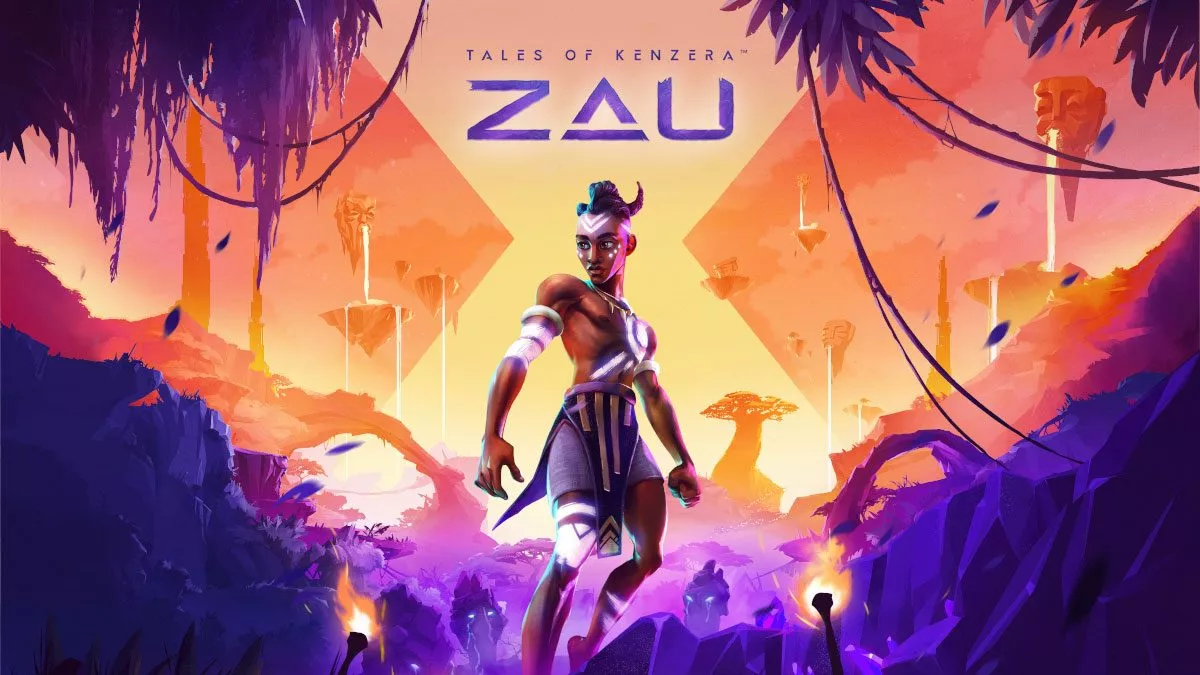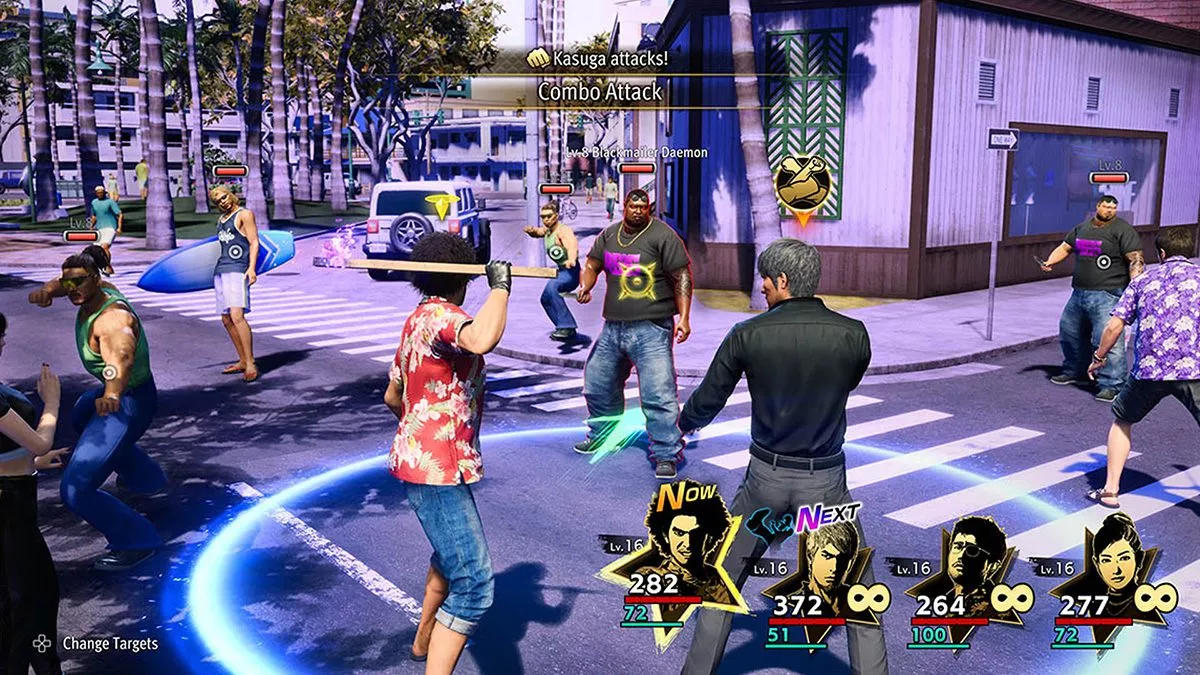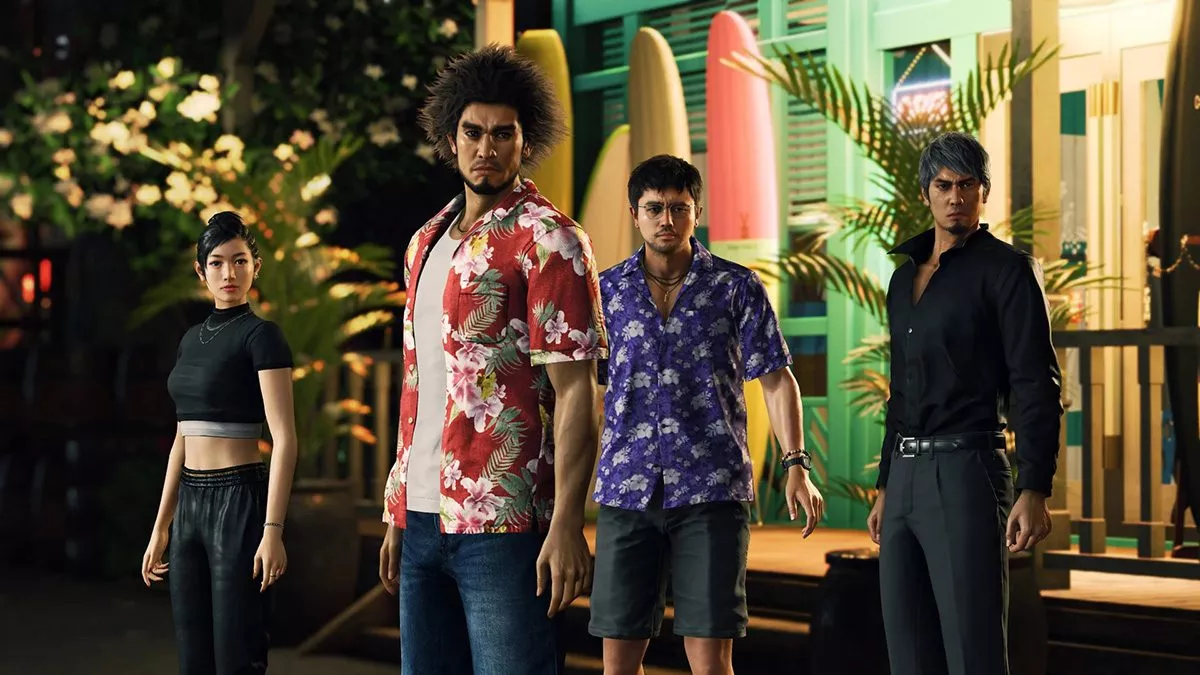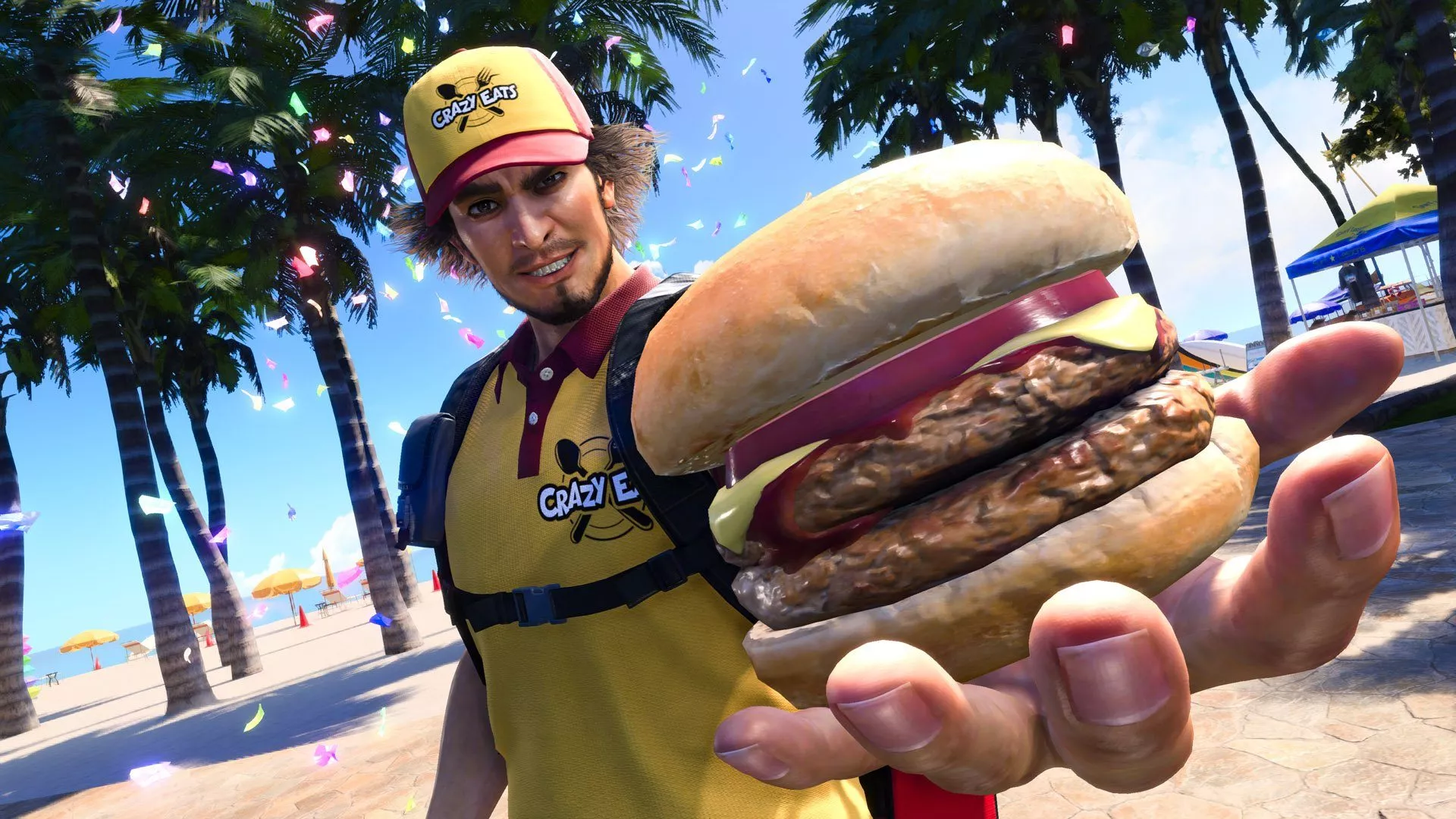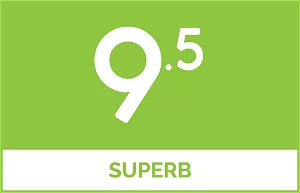Rock the Aloha State.
You know me at this point, dear reader – I’m well-established as Stevivor’s resident Yakuza/Like A Dragon sicko. I was introduced to the franchise through these reviews, and it’s been an ongoing pleasant surprise to find the joy in each and every one of these weird little games – and to watch as the franchise has gained increasing traction and visibility in western markets. 2024’s instalment in the decades-spanning saga is going bigger and harder than ever before, taking its story international while also bringing two of its powerhouses together at the same time. Say aloha to Like A Dragon Infinite Wealth.
Infinite Wealth puts us back in the shoes of Ichiban Kasuga, the star and new protagonist of 2020’s Yakuza Like A Dragon. After saving his new hometown of Ijincho from a political disaster and learning more of his own origins, Ichiban is dubbed the “Hero of Yokohama” by the public. Celebrated for his actions stopping the rogue Bleach Japan party and assisting in the dissolution of two of Japan’s largest yakuza factions, Ichiban finds himself a public celebrity living the high life.
Setting out to fulfil his former boss’ dream to find a new path for the men of the yakuza, Ichiban has gone straight, employed at Hello Work to help find above-board jobs for other former yakuza in a political environment doing everything it can to make their lives worse. Given that this was the location used in the previous game to change your party’s job classes, it’s a fun nod to see this as the place re-homing former gang members in new roles too.
Of course, it’s not long before Ichiban’s status quo is upended; after misinformation is spread about him online, he soon loses his job and finds himself back in the same dead-end situation he was before he saved his city. When the fallout affects his friends and former party members too, he’s left in a deeper funk than ever before. In a stroke of luck, that’s exactly when good news is dropped in his lap – the mother he learned about in Yokohama isn’t dead after all, and wants to meet him… in her home of Hawaii.
One of Like A Dragon’s strengths has always lay in confining itself to the same small but complex locations, evolving and aging them over time – like the iconic Kamurocho, where longtime protagonist Kiryu’s games were set across a span of multiple decades. Even Yakuza Like A Dragon’s Ijincho was revisited in 2021’s Lost Judgment, and was shown to have changed plenty in the time between the two games. As such, moving a large chunk of the game to Hawaii is a pretty big swing, and far outside of the usual purview of the series.
Infinite Wealth’s version of the city is sprawling, lively, and full of bizarre translations of both American and Hawaiian culture as viewed through a Japanese lens. The world of Like A Dragon’s Honolulu is populated by an odd mix of American stereotypes, the same Japanese NPCs you’d find in any of the Japan-set games, a smattering of deep and truly interesting characters with unique backgrounds, and also horrifying human caricatures that would be more at home in the janky world of Deadly Premonition. Oh, and Danny Trejo.
That said, it’s still a wild ride. As with any game in this franchise, the story is full of twists and turns, both expected and completely out of left field. You’ll be running from the police and fighting for your life in one scene, only to find yourself in the next learning about the joys of capturing and training perverts you meet on the street – sorry, I meant “Sujimon” – against each other in an official fighting league. In any other game this kind of tonal whiplash would feel uneven and poorly planned, but it’s honestly where Like A Dragon Infinite Wealth thrives.
You TRULY never know what the game’s going to throw out next, but it stacks up interesting diversions so quickly that it would be easy enough to get sidetracked and never make it through the main story at all. After introducing the strangely addictive Animal Crossing/Harvest Moon hybrid Dondoko Island minigame halfway through the story, it’s a wonder this review ever got written in the first place!
The move to Honolulu isn’t the only big change in Infinite Wealth – the game’s combat has also evolved beyond the turn-based roots of Ichiban’s freshman game. Each party member can now move within a certain space before taking their action to angle and orient their attacks, especially those that have a knock-back effect or attack anything in a straight line. If you manage to knock an enemy into another party member, they can also provide a follow-up attack that damages them even further. While this could occur by itself in Yakuza Like A Dragon, the sequel makes it a much more intentional and strategic play; line things up right and your crew could knock an entire group of enemies down like bowling pins.
The job class system also returns, with a Hawaiian flavour – jobs like surfer, hula dancer and fire-twirler open up new skills in combat, though the game does have a long run-up before you can access this feature. Thankfully, healing skills are a lot more common across a variety of jobs than they were in the past – and with good reason, as the hooligans of Hawaii aren’t pulling any punches.
Even on the lower difficulties, it’s all too easy to see your party leader wiped out and lose the battle entirely if you’re just blundering through without managing your team effectively. Thankfully this only loses you some of your cash, as opposed to a game over screen – and even that can be limited by depositing all your cash at an ATM before embarking on any of the game’s well-signposted battle rushes or dungeon-crawling sequences. Venturing into high-level zones of the city ahead of time is doable, but suitably risky; the game will put you in your place if you’re not careful, but won’t punish you too hard. As your roster expands to include new faces like cab driver Eric Tomizawa as well as familiar faces like Kazuma Kiryu himself, you’ll have plenty of chance to diversify your approach to fights and find all-new ways to beat the shadier inhabitants of the Aloha State to a pulp.
In between fights on the streets of paradise, Infinite Wealth offers an abundance of ways to improve your skills and earn rewards to make the battles ahead more manageable. Minigames like picking up trash, working as a food delivery guy or retrieving lost fortunes from a temple might sound boring, but every last one has been turned into a unique and actually fun activity, surprisingly enough. Every other stranger on the street has an odd job to offer you, and you’ll soon be inundated with a half-dozen points systems that each have their own goodies to be redeemed for. Nothing ever feels like wasted effort, because you’ll be handed cool stuff no matter what you choose to do.
Among these are two larger minigames that may just consume your gaming time entirely the Sujimon League and the previously-mentioned Dondoko Island. The League is an extension of the Sujidex submission in Yakuza Like A Dragon, which tasked you with meeting and recording all the varieties of street punks and troublemakers you could fight in the game. In Infinite Wealth, you’re now able to catch and train your own team of street weirdos, and battle them against other Sujimon Trainers across the island, as well as encountering raids to recruit new Sujimon to your cause.
All this results in a strange mix of Pokémon Go and a 3-on-3 rock-paper-scissors combat system, letting you eventually face and defeat the Discreet Four to become a Sujimon master. It’s a wild system to implement, and also wildly detailed for something that began as more of a goof in the last title – I wouldn’t be surprised if some form of it was spun off as a mobile title as well, transitioning its simulated gacha mechanics into the real deal.
The second of these larger minigames, Dondoko Island, sees you renovating an island paradise in a fusion of mechanics from farming sims like Harvest Moon, a crafting system and island rating mechanic straight out of Animal Crossing, along with some combat that’s a different system again from the battles in the main game. Dondoko has a whole storyline of its own going on, and a daily loop of activities that activates the checklist-loving ding-boy instinct in this reviewer’s brain far too well.
While the game only asks you to play a couple days to establish the island before returning you to the main story, a whole week and a half of island renovation had flown by without me even realizing any time had passed. It’s a blessing and a curse to know that after this review is published, there’s still an entire island waiting to be cleaned up, populated with buildings straight outta Kamurocho, and turned into a prosperous resort across many (many) hours of gameplay.
As rapidly as they’ve started to arrive, I’m always excited to dive into a new game in the Like A Dragon universe. Infinite Wealth continues to go bigger, crazier and ever more stunning to look at, even as Ryu Ga Gotoku Studio expands the scope of its games far beyond the tight little map of yesteryear. The best part of it all is that Infinite Wealth is devoted to trying all-new things while still reserving time for celebrating its long and storied history.
I can’t think of another game where I’d be excited to see a household appliance as a returning character, and yet I sure was excited to hear its creepy little MIDI sounds blaring out of my speakers once again. Like A Dragon Infinite Wealth is jam-packed with a little of everything, and that’s just the way I like it. Aloha to you, dear reader – the islands are calling my name, and I’ve got checklists to complete.
Like A Dragon: Infinite Wealth was reviewed using a promotional code on PlayStation 5, as provided by the publisher. Click here to learn more about Stevivor’s scoring scale.
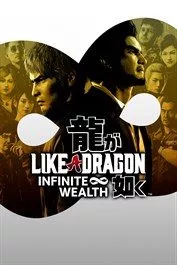 |
Like a Dragon Infinite Wealth26 January 2024PC PS4 PS5 Xbox One Xbox Series S & X
|
This article may contain affiliate links, meaning we could earn a small commission if you click-through and make a purchase. Stevivor is an independent outlet and our journalism is in no way influenced by any advertiser or commercial initiative.


